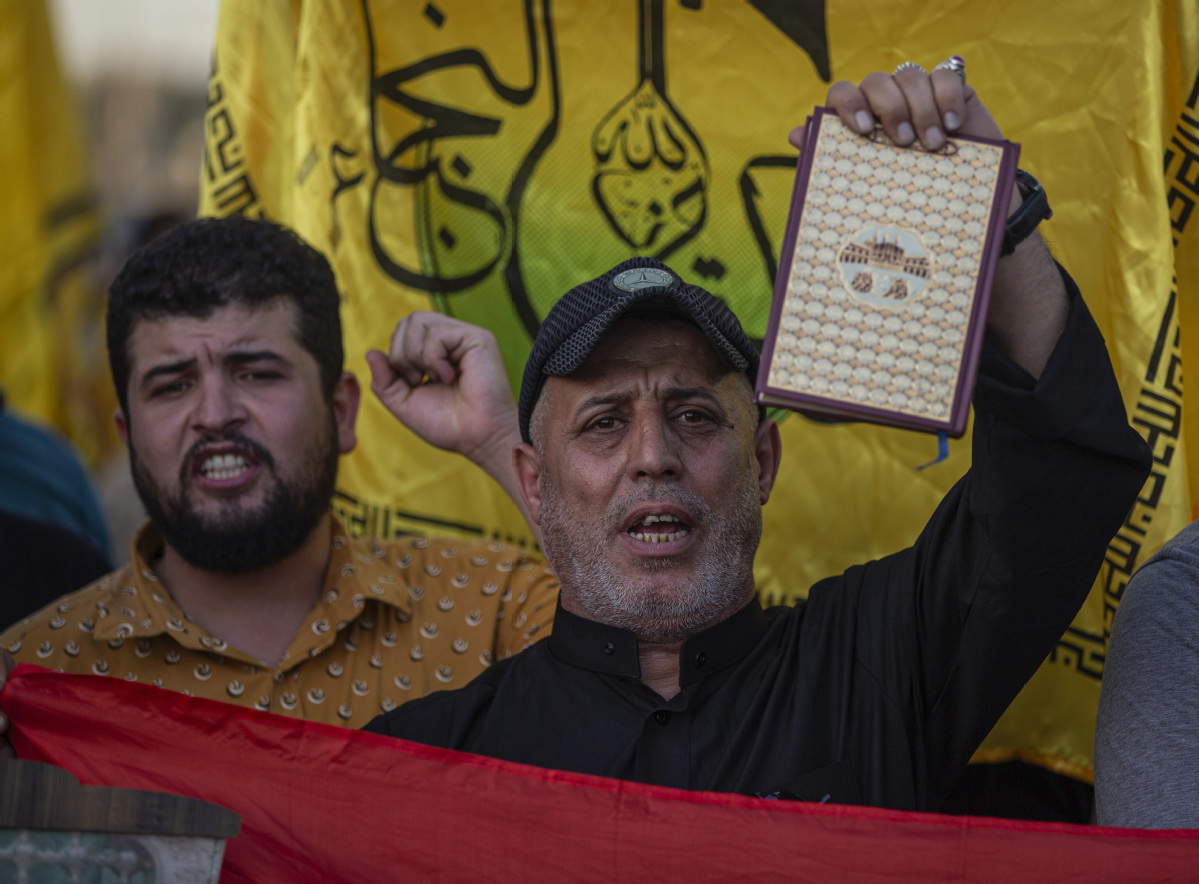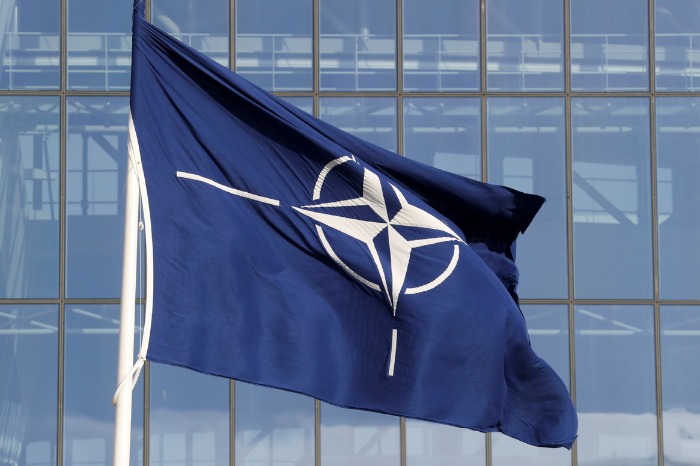Sweden urged to prevent 'hate crimes'
By Jan Yumul in Hong Kong | China Daily | Updated: 2023-07-22 07:30

Muslim-majority countries outraged over Quran desecration in Stockholm
Sweden is urged to take necessary measures so as to protect religious freedom and prevent "hate crimes", following diplomatic rows with Iraq and other Muslim-majority countries over planned burnings of the holy book Quran.
After strong reaction from Muslims, the announced burning of the Quran near the Iraqi embassy in Stockholm did not materialize, though protesters continued with other actions under the presence of the Swedish police. The Iraqi government had earlier warned of severing diplomatic ties with Sweden if the burnings continued.
The Organization of Islamic Cooperation's Secretary-General Hissein Brahim Taha expressed deep disappointment that the Swedish authorities "continued to issue permissions, despite the alarming consequences of the despicable act of desecration". He also urged the Swedish government to take necessary measures so as to avoid escalation and further repercussions.
Some Muslim-majority governments have also issued statements condemning the acts and have summoned Swedish representatives in their countries. Turkiye's Foreign Ministry condemned the "attack" on the Quran in Stockholm, while urging Sweden to take measures against such kind of "hate crimes".
In a statement issued on Friday, Saudi Arabia's Ministry of Foreign Affairs condemned and denounced what it called "the repeated and irresponsible actions of the Swedish authorities" by "granting some extremists official permits authorizing them to burn and desecrate copies of the Holy Quran".
The Saudi ministry was expected to summon the charge d'affaires of the Swedish embassy in the kingdom to hand him a protest note.
Iran also summoned the Swedish ambassador to Teheran on Thursday evening "to file Iran's strong protest against this sacrilegious move".
Its Foreign Minister Hossein Amir-Abdollahian had written a letter to United Nations Secretary-General Antonio Guterres to take a hard line on the repeated desecration of the Muslim holy book.
"The continuation of such acts under the guise of freedom of speech constitutes a gross insult to all Muslims and provokes different communities with the aim of promoting Islamophobia and extremism," he said.
Iraqi Foreign Ministry spokesperson Ahmed Al-Sahhaf said Foreign Minister Fuad Hussein contacted counterparts in Turkiye, Iran and Jordan to discuss convening an emergency meeting.
Iraq on Thursday ordered the expulsion of Sweden's ambassador to Iraq. The country had also recalled its charge d'affaires in Sweden.
Abdul Wahed Jalal Nori, assistant professor at the International Islamic University Malaysia, told China Daily that from a legal perspective, it is essential to recognize that different countries have varying laws and approaches regarding the freedom of expression and blasphemy.
Sweden does not have a law against blasphemy. But Abdul Wahed said in countries like Iraq, where religion plays a significant role in society, there are stricter laws against blasphemy to protect religious sentiment.
"When such an incident occurs in a country with strong religious beliefs, like Iraq, Pakistan or Afghanistan, it can trigger significant outrage and demonstrations, leading to diplomatic tensions between nations. The expulsion of the Swedish ambassador indicates the seriousness with which Iraq perceives the incident and reflects the level of offense it caused," Abdul Wahed said.
"In such situations, it is crucial for both parties to engage in diplomatic dialogue and seek understanding and resolution."
Kamaruzaman bin Yusoff, a Middle East analyst and former dean of the Faculty of Islamic Civilization at Universiti Teknologi Malaysia, said the action taken by Iraq is "normal" because the Swedish people have an"Islamophobic attitude" that is "very wrong from the international perspective".
"Although it is their own right to do it in their own country, they have to consider also we are living in a global village," Yusoff told China Daily. "Anything that we do, we have to also take into consideration some of the feelings of other people."
























